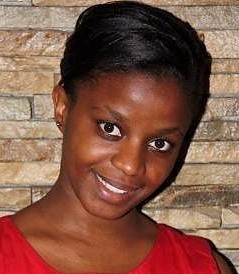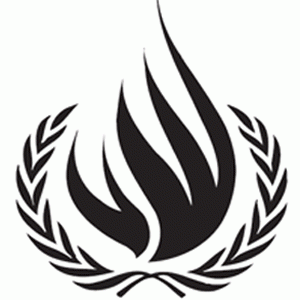Board awards scholarships to African members
Florence Dallu, an award-winning Kenyan journalist and communications specialist with over ten years’ experience working with both local and international media is one of two African recipients of IAWRT/FOKUS scholarships for 2017.
Her goal is to be a voice for women and children in Africa, through her writing and multi-media skills.
Carmine Amaro from South Africa has also received support for her media studies in 2017.
Ms Dallu plans to develop her career and skills as a communicator (she now works at the Elizabeth Glaser Pediatric Aids Foundation) by pursuing a Masters degree in Corporate Communications from the United States International University (USIU- Africa).
Florence writes:
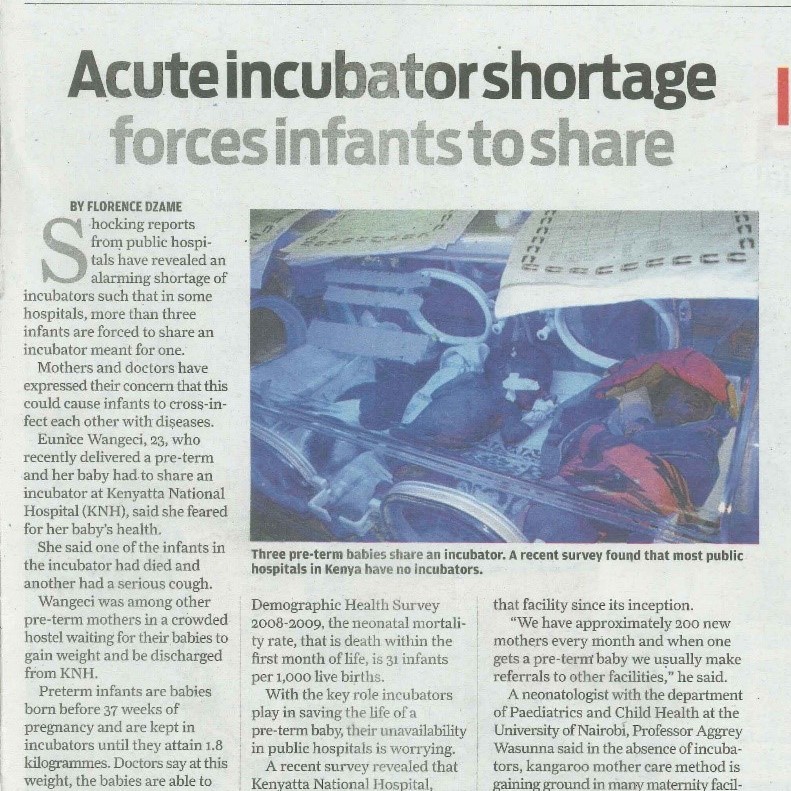 I am a seasoned TV reporter having started in the industry as a teenager presenting a TV children’s show. The program was produced by Josephine Karani – IAWRT Chapter Head in Kenya, and it broadened my knowledge in children’s affairs and grew my interest in advocating for the recognition of children’s rights.
I am a seasoned TV reporter having started in the industry as a teenager presenting a TV children’s show. The program was produced by Josephine Karani – IAWRT Chapter Head in Kenya, and it broadened my knowledge in children’s affairs and grew my interest in advocating for the recognition of children’s rights.
The exposure I gained from my show provided me with many opportunities, among them being elected to the Children’s Cabinet of Kenya. During my term as president, the Children’s ACT 2001 was passed into law.
I have worked in various media fields since my teen years including writing for a national daily newspaper, presenting a radio show with the United Nations Information Center, and a live TV program on a national broadcasting station.
My experiences have fuelled my fervor for advocating for change to alleviate the plight of women and children. A story I did on children forced into sex work in Kenya’s Korogocho slums won me many accolades, including the 2013 CNN African Journalist of the Year, Radio General News Award and the 2012 KEMEP/UNFPA media award on gender and development.
I have plans to publish academic papers and reach an entirely different audience with my pieces. I hope that by pursuing a Masters I can be able to gain skills and advance my knowledge in documentation.
I also hope that the Masters will allow me to grow in my career and give me an added advantage when pursuing opportunities in communications.
Click for another of my stories, Growing up with HIV.
Carmen Amaro:
is an audio engineer at ETV and secretary of the South African chapter of IAWRT,. She is the second recipient of a 2017 scholarship. She is also on online blogger and presenter for Astute Radio – a site which challenges stereotypes. She says she is “really excited about this opportunity for growth”
Carmine is currently enrolled in a Bachelor of Arts program and will be using the scholarship from IAWRT/FOKUS to cover the courses for Communication Science, which is one of her majors.
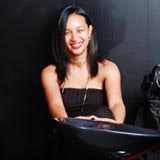
“I have been busy with the introductory courses for Communication Science and last week I completed my examinations for two courses. I am anxiously awaiting the results of these exams.”
The purpose of the courses is to introduce students to the basic principles of communication and to create an awareness of the skills and competencies needed to communicate effectively.
The section on Communication Contexts and Applications covered interpersonal communication, communication in small groups, public speaking, mass communication and specialisation areas in communication studies.
“For the upcoming semester(June-December) I will be studying organisational communication theory and research, and gaining practical skills to promote an integrated approach to organisational communication.
Mass Communication and Media Theory involves critical analysis of the relationship between the media and democracy, the functions, effects and power of the media in society and the media as public sphere and media culture.
My studies will also include English for academic purpose and marketing communication. “I will be finishing further subjects during the Jan-June period 2018 and I will keep you posted.”
check out some of Carmine’s Astute broadcasts: People living in Poverty Do black bodies matter? and blogs: The Value of Time
2016 recipients
Sarah Nakibuuka Bakehena
is the IAWRT Chapter head in Uganda, she undertook training in photography and video production at the UMCAT School of Journalism and Mass Communication in Kampala.
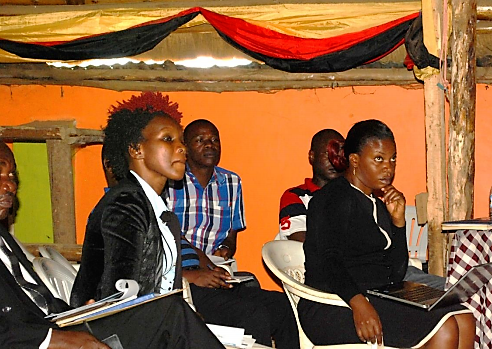
Sarah writes:The training course in photography and videography was aimed to develop and enhance my career capacity as a professional as it offered an opportunity to learn new techniques in the area of photography and videography. It exposed me to various aspects of innovation in the two areas. The training included lectures, field visits, practicals, tutorials and presentations. Pic:Sarah Nakibuuka during one of the practical sessions away from the Institution.
I had some general skills in the area, but the course helped me acquire additional skills and exposed me to a variety of modern techniques and the opportunity to access the state of the art technology and equipment: The school has equipment for practical work, so now I can handle various equipment for capturing video or stills, editing and the entire production process.
It also provided opportunity for networking and acquiring new friends in the same profession and this has helped me a lot, through referrals. I hope to start producing videos and photos on a commercial basis if I get resources for equipment like cameras, computers for editing and software.
I would like to extend my sincere thanks to IAWRT for the support which has enabled me to acquire additional skills for my photography and videography career. As an IAWRT country chapter head, I will also be able to support both the upcoming members and the professionals in the same field.
Shaileza Singh:
from Nepal was also a recipient of a 2016 scholarship to assist with her Masters Degree at Kantupur City College, Kathmandu.
“I am very much grateful to IAWRT, for providing me such an esteemed scholarship scheme to peruse my academic career, without which I wouldn’t have been able to continue my master’s degree.”
Indeed, with the kind support and help of the scholarship committee of IAWRT, I got this opportunity for enhancing and upgrading my education and qualifications which really translated my dream into a successful reality.
Shaileza has achieved strong results in studies including mass communication, the Nepali media and mass media, journalism principles, media law, photo journalism, and electronic publication.
“It is my pleasure and privilege to let you know that I have accomplished fourth semester of my Master of Arts in Mass Communication & Journalism and I am preparing for my thesis.
Josephine Mirembe Nkuubi:
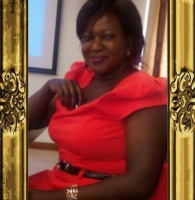 was assisted through an IAWRT/FOKUS scholarship to attend the United States International University – Africa, in Nairobi, to study for a Bachelor of Arts in International Relations, Peace and Conflict Studies. She completed the degree in 2017.
was assisted through an IAWRT/FOKUS scholarship to attend the United States International University – Africa, in Nairobi, to study for a Bachelor of Arts in International Relations, Peace and Conflict Studies. She completed the degree in 2017.
Josephine says “this support came at a great time of financial need and I am grateful to IAWRT for what it has done for me. Indeed, IAWRT served as my only hope for my last-minute rescue to enable me to continue and complete my studies as I had intended.”
“The USIU training offers me a dual qualification which is acceptable in Kenya and internationally, and this course will be useful in enabling meto access opportunities that I would never have had because of lack of a first degree.
In addition, she has been exposed to lots of knowledge and Josephine says she has been humbled by IAWRT’s support, which has given her confidence and grown her self-esteem, She intends to keep working in IAWRT (she is currently the Vice Chair of the Kenya Chapter) “to give back to IAWRT in whatever capacity, forever and ever.”
Josephine will be graduating in early September 2017.
Cecilia Maundu Mwende:
 from Kenya, another 2016 recipient, has been assisted to complete a PHD by thesis with the Department of Communication Studies, Moi University, Eldoret, Kenya. It is entitled “Documentary Filmmaking as an Agent of Social Change”.
from Kenya, another 2016 recipient, has been assisted to complete a PHD by thesis with the Department of Communication Studies, Moi University, Eldoret, Kenya. It is entitled “Documentary Filmmaking as an Agent of Social Change”.
It examines expository documentary films which advocate for social change by telling stories concerning problematic social issues. Cecelia’s thesis explores how films go about such advocacy and examines the situations where such strategies most effective in influencing social change.
She is using case studies, accompanied by interviews with documentary makers and target audiences as well as TV program managers to illustrate the extent to which observational documentaries can shape the views of their target audience, and in turn, persuade them to change and take the necessary action.
Sharmistha Jha:
from India has been assisted to complete a PhD at Assam Dom Bosco University, Azara, Guwahati, in 2016 she completed the mandatory coursework. “I am working on my research proposal which relates to online (new) media.
Mausumi Bhattacharyya
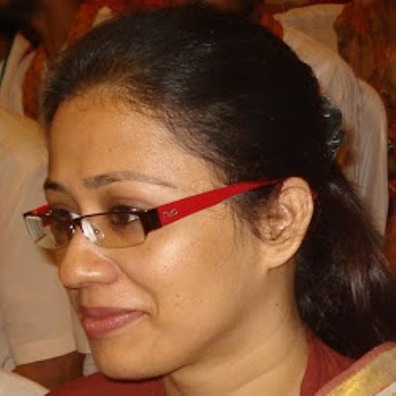 Mausumi was supported in her studies with a scholarship, and completed her thesis in 2016.
Mausumi was supported in her studies with a scholarship, and completed her thesis in 2016.
We have already posted a website report on her research on Rural Indian women and their use of mobile phones, and shared the executive summary of her thesis about the potential of this technology as a tool of empowerment for such women.
Mausumi is hoping to extend on this research in the future.

